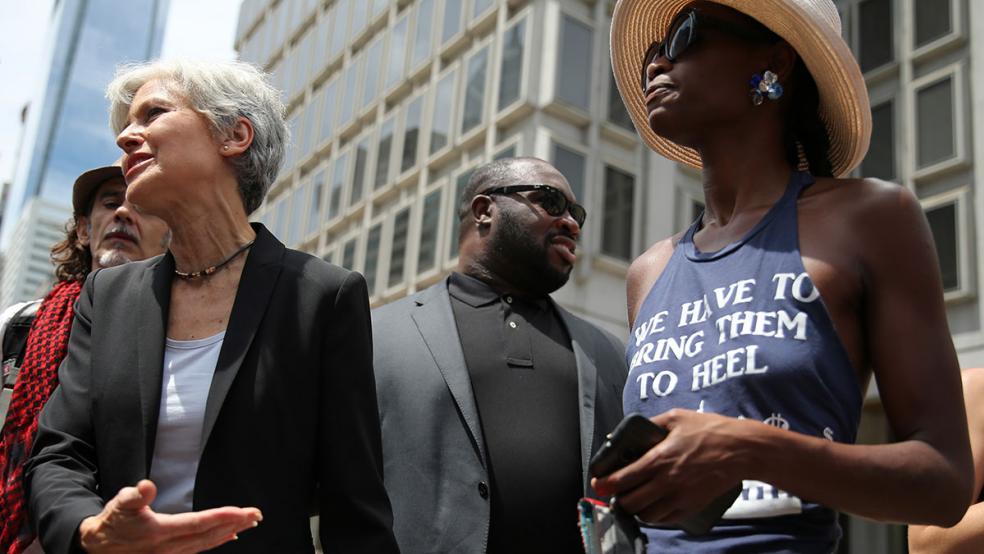Unless there’s a dramatic change in the presidential campaign between now and the fall, supporters of Libertarian Party presidential nominee Gary Johnson and Green Party nominee Jill Stein aren’t going to see their preferred candidates on the debate stage in the final months of this election. That goes double for people backing the recently announced anti-Donald Trump candidate Evan McMullin.
The Commission on Presidential Debates on Monday confirmed that it would be sticking to the eligibility requirements it outlined last year when it decides which candidates will be invited to participate in the three scheduled debates between presidential contenders and the one vice presidential debate.
Related: Trump Promises to Get ‘Vicious’ With Radical Islam
Besides meeting the Constitutional requirements for the presidency and having qualified for the ballot in at least enough states to deliver an Electoral College majority of 270 votes, the candidates will have to have an average 15 percent support in a selection of national polls a few weeks prior to each debate.
The CPD announced on Monday the polls that it will use, and the list contained no surprises. They are: ABC-Washington Post; CBS-New York Times; CNN-Opinion Research Corporation; Fox News; NBC-Wall Street Journal.
The likely result is that only Republican nominee Donald Trump and Democratic nominee Hillary Clinton will be on the debate stage.
As it currently stands, the debate schedule will be as follows:
Related: The Russian Government Could Be Manipulating the US Election
First presidential debate, Sep 26, at Hofstra University, Hempstead, NY.
Vice presidential debate, Oct 4, at Longwood University, Farmville, VA.
Second presidential debate, Oct 9 at Washington University in St. Louis, St. Louis, MO
Third presidential debate, Oct 19 at University of Nevada, Las Vegas, Las Vegas, NV
While the CPD does its best to eliminate even the slightest suggestion of favoritism or mid-game rule-changing, supporters of third-party candidates can be forgiven for hoping that the unusual circumstances surrounding the current campaign might have been enough to persuade the commission to bend the rules.
Related: As Young Voters Flee Trump, Republicans May Be Losing a Generation
Voter dissatisfaction with both major party nominees -- Trump and Clinton rank first and second among the most unpopular major party candidates in history -- has sparked more interest than usual in alternatives to the Democratic and Republican parties. The addition of McMullin to the race makes it even more difficult for a third-party player to win a seat at the debate table.
In the end, the decision will probably be seen as a boon to Clinton.
While there’s no telling how the debates will play out, the conventional wisdom is that a crowded stage would play to Trump’s advantage. It would divide the moderators’ attention and reduce the amount of time that the detail-challenged Trump needs to spend articulating or defending his policy positions. Additionally, it would force Clinton to address challenges not just from the right, but from the left as well.
Related: Why Trump Could Be a Problem for Republicans Long After He’s Gone
As it looks now, though, Trump and Clinton are likely to be on the stage alone. The Real Clear Politics polling average has Johnson sitting at 8.3 percent in its average, and Stein at 3 percent.
The one wildcard -- no surprise -- is Trump.
“I want to debate very badly. But I have to see the conditions,” the former reality television star said last month, reminding reporters that he had “negotiated” the ground rules for the Republican primary debates in the middle of the process.
For the record, it wouldn’t be a shock if Trump delivers an ultimatum demanding that third party candidates be included in the presidential debates, and if he’s denied, withdraws while claiming that it validates his claim that the process is “rigged.”





